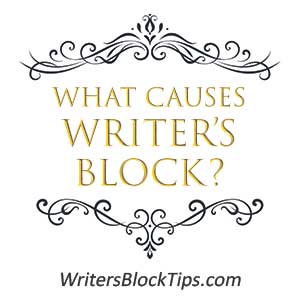Writing: Why Can’t I Get Started? – Writer’s Block Help
 Writing can be an exhilarating creative outlet, but it can also feel like an insurmountable challenge when the words just won’t flow. Many writers—whether beginners or seasoned professionals—find themselves staring at a blank page, asking, “Why can’t I get started?” This phenomenon can be deeply frustrating and even debilitating. But what lies behind the struggle to start writing?
Writing can be an exhilarating creative outlet, but it can also feel like an insurmountable challenge when the words just won’t flow. Many writers—whether beginners or seasoned professionals—find themselves staring at a blank page, asking, “Why can’t I get started?” This phenomenon can be deeply frustrating and even debilitating. But what lies behind the struggle to start writing?
Let’s explore the common experiences and causes, including what happens when you suddenly can’t write properly, how it feels to have writer’s block, what it means to experience writer’s block, and what causes it in the first place. Created by a former literary agent who’s helped 400+ authors get literary agents and/or traditional book publishers as an author coach/consultant, this article is part of a guide about How to Get Over Writer’s Block.
Suddenly Unable to Write Properly
One of the most unsettling experiences for a writer is the sudden inability to write properly. Imagine this: You’ve been writing consistently for weeks or months, churning out content or chapters with ease. Then, without warning, it’s as though your skills have vanished overnight. You might feel disconnected from your creative process or find that sentences, once so natural, now seem clunky and incoherent. What’s going on?
This sudden shift can happen for several reasons:
- Burnout: Prolonged periods of productivity can exhaust your creative reserves, leaving you drained.
- Self-Doubt: A fleeting moment of insecurity or criticism (external or internal) can shake your confidence, making it difficult to move forward.
- Overthinking: Writers who focus too much on perfection or future outcomes may find their creativity stifled in the present moment.
This experience can feel isolating, but it’s surprisingly common. Many authors, including the most prolific ones, have gone through periods where they suddenly felt like they couldn’t write properly. It’s a natural, albeit frustrating, part of the creative journey.
I Have Writers Block
The phrase “I have writer’s block” is one that countless writers have uttered in despair. It’s a simple yet powerful acknowledgment of the internal roadblock standing between you and your words. But what does it really mean to have writer’s block? How does it feel, and why does it happen?
Writer’s block is more than just a bad day at the keyboard. It’s a complex phenomenon characterized by:
- A Loss of Creativity: Ideas that once seemed abundant and exciting suddenly feel out of reach.
- Frustration: The more you try to write, the more impossible the task feels.
- Procrastination: Instead of writing, you may find yourself avoiding it altogether—scrolling through social media, cleaning the house, or doing anything but putting pen to paper.
One of the defining traits of writer’s block is that it can strike anyone, anywhere, at any time. It doesn’t matter if you’re an aspiring novelist, an experienced journalist, or a student working on an essay. When you have writer’s block, even the simplest tasks—like writing a sentence—can feel overwhelming.
Experiencing Writer’s Block
Experiencing writer’s block is often an emotional rollercoaster. At first, it might seem like a temporary hiccup: “I’ll start tomorrow,” you tell yourself. But as days or weeks pass without progress, the experience can escalate into something more intense. Here’s what it’s like to experience writer’s block firsthand:
- The Blank Page Dilemma
You sit down to write and stare at the blank page. Minutes turn into hours, and the cursor blinks back at you, almost tauntingly. No matter how hard you try, you can’t seem to find a way to begin. This is one of the most frustrating aspects of writer’s block—feeling stuck at the very starting line. - Writing Feels Foreign
Even if you manage to start, the words feel clunky or out of place. Sentences that once flowed with ease now feel labored. It’s as though you’ve lost your natural voice, leaving you disconnected from your own writing. - Guilt and Anxiety
Writer’s block often comes with a sense of guilt. You might think, “I should be writing,” or “Why can’t I just do this?” Over time, this guilt can spiral into anxiety about deadlines, expectations, or the quality of your work. - Creative Paralysis
Experiencing writer’s block can make you question your abilities as a writer. This self-doubt creates a vicious cycle where the fear of producing “bad” work prevents you from writing at all.
These emotions are not unique to one person—they are shared by writers everywhere. Understanding that writer’s block is a universal experience can help alleviate some of the shame or isolation it brings.
What Causes Writer’s Block?
To address writer’s block effectively, it’s important to understand what causes it. While the experience varies from person to person, there are several common triggers that can lead to creative stagnation.
- Fear of Failure
One of the most pervasive causes of writer’s block is fear—fear that your work won’t be good enough, fear of rejection, or fear of disappointing yourself or others. This fear can paralyze writers, making it impossible to start or finish a project.
- Perfectionism
Perfectionism is another common culprit. Writers who hold themselves to impossibly high standards often struggle to get words on the page. The need for every sentence to be “perfect” before moving forward can create a bottleneck in the creative process.
- Burnout
Writing for extended periods without rest can lead to burnout, a state of emotional, physical, and creative exhaustion. Burnout doesn’t just drain your energy—it also diminishes your ability to think creatively or enjoy the act of writing.
- External Stress
Life events, work-related stress, or personal challenges can take a toll on your mental energy and focus. When your mind is preoccupied with other concerns, it’s difficult to channel your energy into writing.
- Lack of Inspiration
Sometimes, writer’s block is as simple as running out of ideas. When inspiration runs dry, it can feel impossible to move forward. This is particularly true for writers who rely heavily on external stimuli (like reading or traveling) for creative fuel.
- Pressure to Perform
For professional writers, the pressure to meet deadlines or deliver high-quality work can cause writer’s block. The more you focus on what others expect, the harder it becomes to tap into your authentic voice.
- Overthinking
Writers who overanalyze their work or second-guess every decision often find themselves stuck. Overthinking turns the creative process into a chore, sapping the joy and spontaneity that fuel great writing.
Conclusion – Why Can’t I Get Started Writing?
The struggle to get started with writing is a challenge that nearly all writers face at some point. Whether you’re suddenly unable to write properly, feeling like you have writer’s block, or experiencing a prolonged creative slump, it’s important to recognize that these struggles are part of the creative journey.
Understanding what causes writer’s block—from fear of failure and perfectionism to burnout and external stress—can provide valuable insight into why it happens. While this article focuses on the experience and causes of writer’s block, remember that you’re not alone. Every writer has been there, and every writer has the potential to overcome it.
For actionable tips and strategies to overcome writer’s block, please refer to our dedicated page on how to break through creative barriers. Until then, remember that even the greatest authors have struggled with the same question: “Why can’t I get started?”
Now that you’ve read “Writing: Why Can’t I Get Started?” “click here to read “Prompts to Get Rid of Writer’s Block.”

 This guide about
This guide about 